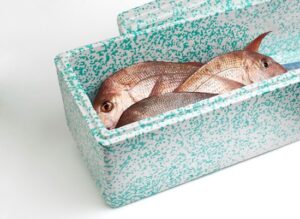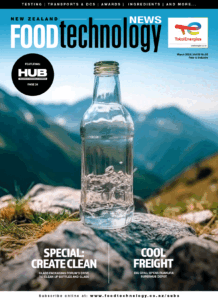
The $1.7 million project has received $472,500 through the Ministry for Primary Industries’ (MPI) Sustainable Food and Fibre Futures fund (SFF Futures) which will be used to fast track the commercial production of the bio-based packaging ZealaFoam.
“We’re supporting Biopolymer Network (BPN) to scale up their manufacturing technology to allow packaging companies to produce ZealaFoam on a commercial scale,” says Steve Penno, MPI’s director of investment programmes.
“BPN has been working closely with moulders and manufacturers to ensure that ZealaFoam can be easily produced on their existing machinery.
“This project will trial the effectiveness of existing polystyrene infrastructure so that packaging companies can adopt ZealaFoam to package seafood products more sustainably.”
CEO of Biopolymer Network, Sara Heine, says ZealaFoam will help futureproof the industry and reduce environmental impacts.
“Many export destinations have introduced taxes on polystyrene or are choosing to ban it entirely,” says Heine.
“We’re excited about producing an alternative that’s sustainable, but also performs well and has the functionality of traditional materials. People want to see change, but they also want performance.”
Steve Penno says this project aligns with the Government’s Fit for a Better World roadmap for the food and fibre sector aimed at lifting productivity, sustainability and creating jobs to drive New Zealand’s recovery from COVID-19.
“The introduction of ZealaFoam will help futureproof the commercial packaging industry and preserve jobs, particularly if traditional plastic packaging is phased out down the track.”
A simulated export trial that transported fish from New Zealand to Singapore over 40 hours found that ZealaFoam kept the product at extremely similar temperatures to the product transported in polystyrene.

































































































